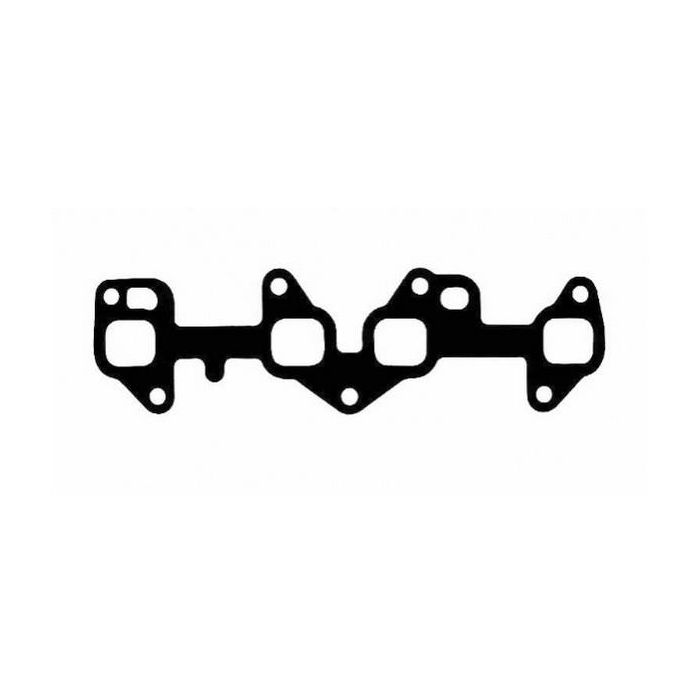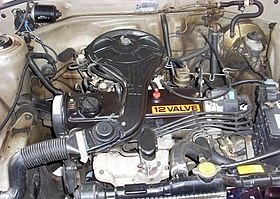Toyota Tazz: Why It Continues to Be a Trusted Vehicle for Daily Commuting
Check Out the most up to date Trends in Engine Technology With Tazz
In the swiftly advancing landscape of vehicle innovation, Tazz stands at the forefront, highlighting significant innovations in engine systems that focus on both advancement and sustainability. From hybrid engines that maximize gas effectiveness to the emergence of hydrogen gas cells, the patterns shaping modern-day powertrains are not just enhancing efficiency however also resolving important environmental challenges.
Crossbreed Engine Innovations
Hybrid engine technologies stand for a critical change in vehicle technology, incorporating the advantages of internal burning engines with electric propulsion systems. This assimilation not only boosts fuel efficiency however also minimizes emissions, meeting significantly rigid environmental regulations. By using both energy resources, hybrid engines can optimize performance, supplying power when needed while preserving fuel during much less demanding motoring problems.
Recent innovations in hybrid innovation consist of enhancements in battery performance and regenerative braking systems. These advancements allow for higher power recovery during slowdown, which can be rerouted to assist in acceleration or power accessory systems. Furthermore, producers are concentrating on lightweight materials and portable styles to optimize the performance of hybrid powertrains.
The advancement of plug-in crossbreeds has actually additionally increased the marketplace, enabling drivers to charge their cars utilizing common electric outlets. This attribute usually permits significant all-electric range, further decreasing dependence on conventional fuels. tazz. As the automotive industry continues to evolve, hybrid engine technologies are expected to play an essential role in bridging the gap between conventional vehicles and totally electrical versions, supplying a transitional option that deals with diverse customer demands and choices
Developments in Electric Powertrains
The automobile landscape is rapidly evolving, with electrical powertrains arising as a leading force in sustainable transport. Developments in electric car (EV) technology are dramatically improving performance, efficiency, and customer experience. Key technologies include renovations in battery chemistry, which have actually increased power density, lowered charging times, and expanded general battery life.
Solid-state batteries, for instance, guarantee to revolutionize the marketplace by supplying greater safety and performance compared to traditional lithium-ion cells. Furthermore, improvements in regenerative braking systems are allowing vehicles to recuperate power during slowdown, contributing to general performance.
Along with battery innovation, electrical motor designs are ending up being a lot more sophisticated. Developments such as incorporated electric motors and progressed thermal management systems are assisting to enhance power distribution and reduce weight, eventually improving lorry characteristics.

Jointly, these developments highlight the commitment to transition towards cleaner, more reliable transport options, positioning electric powertrains at the forefront of auto technology.
The Surge of Hydrogen Fuel Cells
Progressively, hydrogen fuel cells are obtaining grip as a feasible option to conventional internal burning engines and battery electric vehicles. This technology uses the chemical power stored in hydrogen, transforming it right into electrical power through an electrochemical response with oxygen. The main byproduct of this procedure is water, making hydrogen fuel cells an environmentally pleasant option with absolutely no discharges at the tailpipe.

Car manufacturers are significantly investing in hydrogen fuel cell innovation, identifying its possibility for long-range applications and rapid refueling capabilities that equal standard gas. In addition, sectors such as heavy-duty transport and public transit are especially appropriate for hydrogen gas cells, where battery electrical options might drop short as a result of weight and array constraints.
As study and financial investment proceed to expand, hydrogen fuel cells are positioned to play a significant role in the future landscape of tidy transport and power remedies.
Enhancements in Internal Burning Engines
Advancements in interior combustion engine (ICE) modern technology are changing conventional vehicles to fulfill contemporary environmental criteria and performance assumptions. Direct fuel shot, for click to find out more instance, permits for much better atomization of gas, leading to even more complete burning and enhanced power find out this here result.
Furthermore, turbocharging has gotten prominence, permitting smaller engines to supply higher efficiency without the weight of larger engines - tazz. This modern technology not only enhances effectiveness but likewise contributes to reduce gas usage. Variable shutoff timing systems are also being improved, enabling engines to adjust to various driving problems for improved torque and responsiveness
Additionally, using lightweight products in engine construction is ending up being common, additional enhancing fuel performance by reducing general lorry weight. Engine control systems (ECUs) are significantly sophisticated, allowing real-time changes that optimize performance and discharges.
These improvements collectively represent an essential change in ICE technology, lining up with international sustainability objectives while still providing the performance motorists anticipate from their vehicles. As the industry progresses, these improvements continue to shape the future of standard auto engineering.
Future Trends in Engine Efficiency
Considerable improvements in engine performance are prepared for as manufacturers focus on integrating advanced innovations Visit Your URL to satisfy rigid ecological laws and customer needs. The change in the direction of electrification, crossbreed systems, and alternate gas is improving the vehicle landscape, driving advancements that improve fuel economic climate and minimize discharges.
One of the essential trends is the implementation of advanced products and making strategies. Light-weight composites and high-strength alloys add to lowered lorry weight, therefore enhancing total performance. Furthermore, the adoption of turbocharging and variable valve timing technologies permits for enhanced power outcome from smaller engines, better boosting fuel economy.

Verdict
Developments in hybrid engine systems, electrical powertrains, and hydrogen fuel cells show a dedication to lowering emissions while enhancing performance. Enhancements in interior burning engines and an emphasis on light-weight products add to total engine performance.
From hybrid engines that optimize fuel efficiency to the development of hydrogen fuel cells, the patterns shaping contemporary powertrains are not just improving efficiency however likewise attending to essential ecological obstacles.Crossbreed engine technologies stand for a crucial change in vehicle modern technology, integrating the advantages of interior combustion engines with electric propulsion systems.Additionally, turbocharging has actually obtained prestige, permitting smaller sized engines to provide higher performance without the weight of bigger engines. In addition, the adoption of turbocharging and variable valve timing technologies permits for boosted power outcome from smaller engines, further enhancing gas economic climate.
Enhancements in internal combustion engines and an emphasis on lightweight materials add to general engine efficiency.